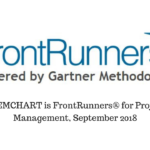Today, you can think about being a project manager with heavy emphasis on the marketing side has really become a tough job. A project manager should always focus on, like when does the milestone gets completed, why will this feature help to improve user, customer satisfaction or user acquisition. So before we understand what are the roles and responsibilities of project manager, let’s quickly know about the history of Project Management.
The forefathers of project management were Henry Gantt and Henri Fayol. Gantt is famous for his use of the Gantt Chart as a project management tool and Fayol for his creation of the five management functions that form the foundation of the project management body of knowledge. In the 1950s two mathematical path method (CPM) evaluate and review technique or PERT.
These mathematical techniques quickly spread into many organizations. In 1956, the American Association of Cost Engineers (AACE) was founded by practitioners of project management. In 2006 ACCE released the first integrated process model for portfolio, program and project management. In 1969, the Project Management Institute (PMI) was founded. PMI publishes the guide to the project management body of knowledge (PMBOK Guide). PMI also offers several certifications such as PMP certification.
So, project management evolved a combination of business administration and engineering. Therefore, to be a successful as a project manager you need to be a business and technical savvy and these 8 methods will help you in understanding the role and responsibilities of a project manager.
In a nutshell, a project manager is responsible for planning, executing and closing a project. He is responsible for accomplishing there greed project goals with the agreed time, budget and scope. Key activities of the project manager include defining clear and attainable project objectives, documenting a project charter that includes the issues to resolve, project goals, scope, team, timeline and the key performance indicators.
Project managers have to manage the triple constraint for a project, which is the cost, the time and the scope. They are also the primary point of contact for project issues and risks. A project manager should always be like, must be a great communicator.
-
Great Communicator
It is said that 50% of a project manager’s time is spent in some aspect of communication. This includes meetings, status reporting, e-mails, and phone calls, coordinating, talking to people and completing documentation. Studies show that verbal and written communication takes 80% of project manager’s responsibilities. If you are not an effective communicator.
-
Team Player
A project manager should be a team player and work well with people. If you prefer to stay in your office and focus on your own work, you probably do not have the collaborative ability to be a good project manager. Project managers should spend a lot of time with their clients, stakeholders and team members.
-
Business Oriented
You have to balance being detail oriented and never lose sight of strategic goals of the business and the picture that may include corporate politics. You have to be detailed oriented when reviewing scheduled, requirements or issues and think big picture in term of strategic business objectives, customer requirements, and office politics.
-
Handle People and Work Processes
A project manager needs to know, how to handle people. You will not have 100% responsibility for people, but you will need to show leadership, hold them accountable, managing conflict, etc. If you like to follow processes, no one wants to be a slave to processes. But, you need good processes to be effective as your projects.
Many aspects of project management require some documentation, including status reporting, communication plans, scope changes and project charters.
-
Good Planner
When a client gives you a project, what is your first inclination should be your first thought that is to get a team together to start executing the work, you probably do not have a project management mindset.
-
Management process
If you think your job is to take orders from the customer and execute them, you may not be a good project manager. Project managers need to provide value to a project including pushing back when the client is asking for things that are not right. If the client raises a request that is out of scope, you also need to invoke the scope and change management process.
-
Skills and Techniques
Poor personal organizational skills and techniques usually do not make good project managers. If you are going to manage multiple people over a period of time, you need to be well organized to make sure that everyone is doing what he or she needs to do as efficiently as possible.
-
Value and Understand your Work
Project managers might think that project management is value adding and not administrative overhead. No one can feel good about their job if they think the work they perform is not value – added.
Good project managers understand the value of their work and understanding the work will result in a project coming in on time and on budget with a good experience for the client and the project team. If you think the work associated with project management is overhead and non-value, you are probably not the right person to be a project manager.
Conclusion
A project is a temporary group activity designed to produce a unique product, service or goal.
Project management evolved in the 1950s as a combination of business administration and engineering project managers have to manage the triple constraint for projects, which is cost, time and scope. They are also the primary point of contact for project issues and risks.
To be a successful as a project manager, you need to be a business and technical savvy. To be a successful project manager you also have to be a great communicator, a team player and balance attention to technical details as well big picture thinking which includes knowledge of business strategy and organizational politics.
Read more about How to successfully manage your first project






